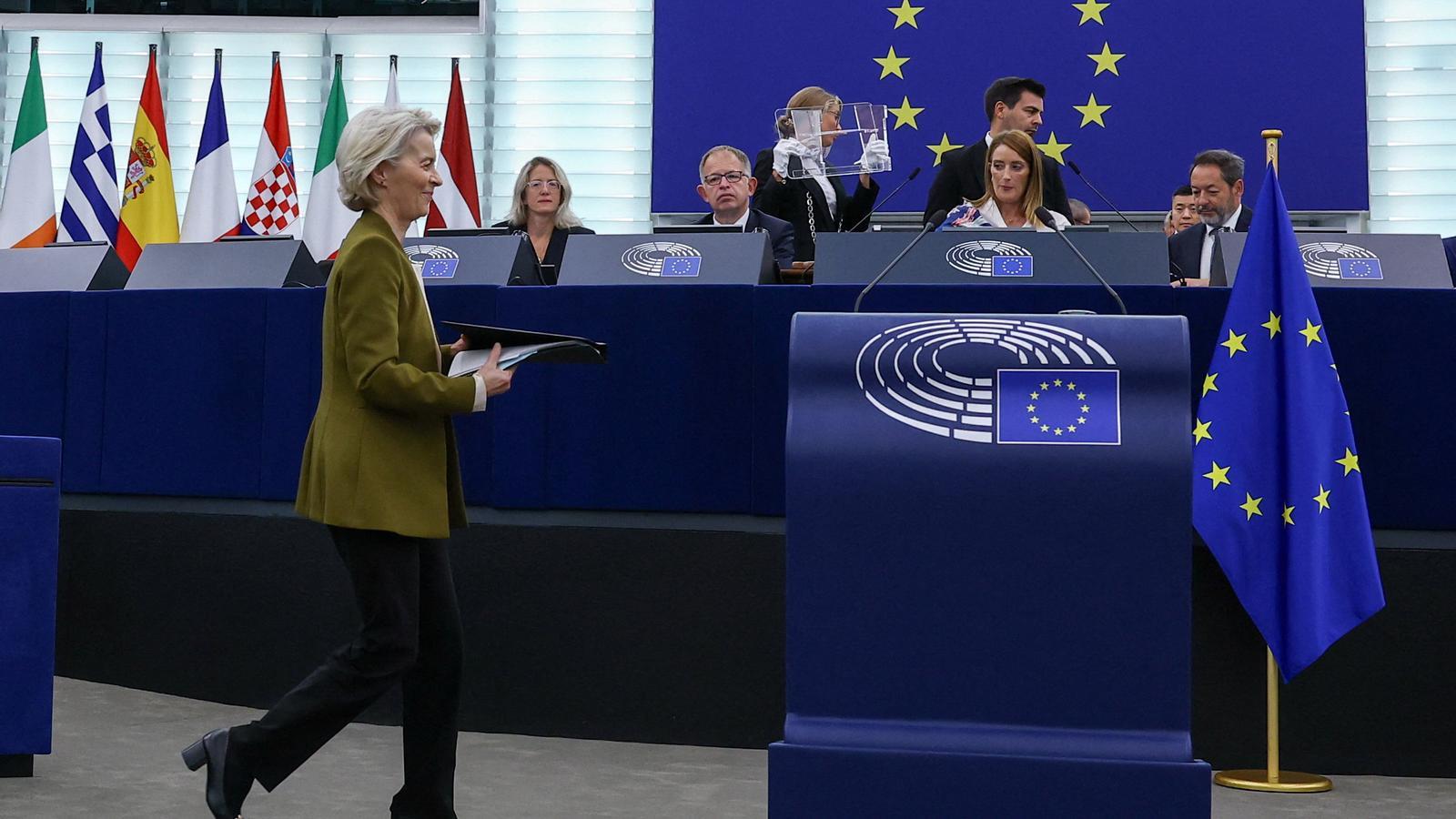Warning in Europe: Trump wants to be our president
The European genuflections before the White House mark the beginning of the EU's political course, which faces an existential dilemma.


StrasbourgOmnipresence is an exclusively divine attribute. Religions claim that only God, or his presence, has the ability to be everywhere at once. The sacred norm threatened to break this week in Strasbourg, one of the hearts of EuropePresident Donald Trump seemed to enjoy the gift of omnipresence: his name has resonated insistently through the chambers and halls of the European Parliament, coinciding with the start of the European political year.
Here comes a statement that pains Europe: Trump holds the immediate future of the continent in his hands. The historical – and extremely convenient – dependence of Europeans on the White House has resulted in a difficult-to-swallow picture: it is Washington, not Brussels, that holds the key to influencing almost all the debates that center the current political situation in the European Union. It is Washington, and specifically the version Trump 2.0, who has shaken the image of the European Union after a summer of calvary. The communal vigor displayed during the pandemic and the early stages of the Russian invasion has faded. Now, an uncomfortable sense of weakness and powerlessness reigns. It is thevery German Ursula von der Leyen has felt the Republican slap in the face the most: from a highly praised and praised president to a dislocated and questioned president.
On Tuesday, the weekly Political described a scene: Trump said in an informal session in the Oval Office that EU leaders refer to him as "president of Europe." Brussels flatly denies the term. But from Brussels, one emphatic photo cannot be denied: the one from Monday, August 18, intentionally released by the White House, in which he was seen Europe's great leaders nodding like obedient students at Professor Trump's explanationsThe US president was lecturing them about the future of the war in Ukraine. Translation: the US president was explaining to them what the future of Europe would look like.
A high-level source from the European Commission said this week that relations with the White House have improved. But Trump is "unpredictable." And because he is "unpredictable," European leaders have mastered the diplomacy of servility so as not to anger the man with the pompadour. Silence or praise is the joint strategy. Only one leader has stepped out of line: Pedro Sánchez, who, apart from Gaza, has frowned upon Washington's commercial and military demands. The Spanish president is said to have been absent from the White House on August 18 for fear of distorting the atmosphere of the meeting.
"Europe is a garden surrounded by jungles," Josep Borrell declared three years ago.Europe, more than a garden, often seems like a bubble: beautiful and extremely fragile, floating in a world where imperial logic once again prevails. And in the corridors of the bubble, mantras were repeated this week that help complete the picture of the momentum European: the political and economic health of Germany and France is worrying; the war in Ukraine will be long; the position on Gaza—conditioned by Berlin—is the most divisive element among the Twenty-Seven; no one trusts China; no one can ignore the rise of the far right on the continent.
The 'to be or not to be' European
But there is a star mantra, a magic potion that has been invoked vehemently since Vladimir Putin decided to invade Ukraine by land, sea and airStrategic autonomy. Translation: to free oneself or diversify one's dependencies as much as possible so as not to be anyone's slave. After having emancipated oneself, by force and too late, from the Kremlin's poisoned energy, the next step—also late—is to become independent from Washington's security umbrella. On the horizon, geopolitical Europe.
But the corridors of the bubble say that autonomy is further away than the official discourse suggests, and that, during these years, one must continue to put on a brave face in the White House for survival. The distance separating Europe from autonomy is technical, but also ideological. Mental emancipation is also necessary. to take controversial political measures such as increasing military spending.
I'm left with two phrases from this week in the Strasbourg bubble.The first is from the commander Von der Leyen, on Wednesday, during the State of the Union address: "Europe must fight for its place in the world. (...) Does Europe have the stomach for the fight?" The second is from a person who, on Wednesday, was listening to Von der Leyen's words from a privileged position: "The war in Ukraine will last as long as the Ukrainians can stand it, as long as the Americans want it to, and as long as Putin can afford."
The first is the geopolitical and existential dilemma that we Europeans must answer: Does Europe want to enter the elders' sphere and have a voice again? The second is the reality in September 2025: Europe's power is insufficient to influence the equations that determine tomorrow's global landscape.
